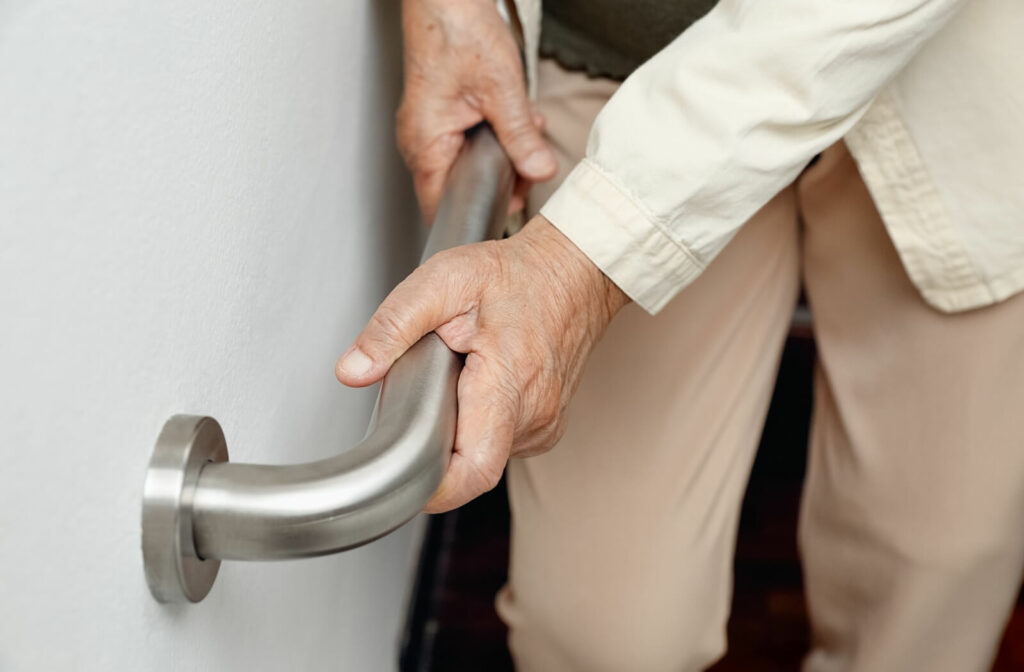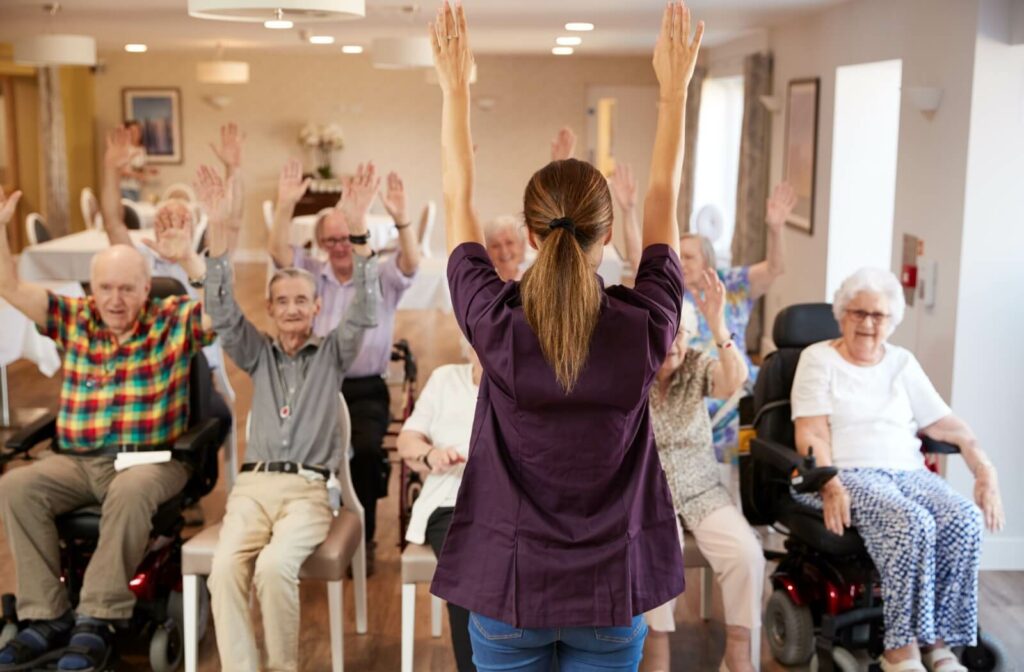Balance is an important part of living independently and safely. However, as we age, maintaining balance can become more challenging. Balance issues in older adults are common and can lead to falls, which are a leading cause of injury among older adults.
Balance issues in older adults are often caused by medical conditions like inner ear problems, arthritis, and vision changes, as well as lifestyle factors such as inactivity and certain medications. Environmental hazards like poor lighting and uneven flooring can also contribute to balance issues and falls.
Understanding the causes, impacts, and solutions for balance problems is essential for promoting a safe and fulfilling lifestyle for older adults. Parsons House Cypress helps with balance issues by offering personalized care, exercise classes, and a safe living environment for our residents that supports their safety and independence.
Common Medical Conditions & Balance
Several medical conditions prevalent in older adults can contribute to balance issues. One of the most significant is vestibular disorders, which affect the inner ear and can lead to dizziness and vertigo. These disorders can disturb the body’s ability to maintain equilibrium, making daily activities more difficult.
Neurological disorders such as Parkinson’s disease and multiple sclerosis can also impair balance. These conditions affect the nervous system, leading to muscle weakness, coordination problems, and tremors, all of which can compromise stability.
Another common cause is diabetic neuropathy, where high blood sugar levels over time damage the nerves, particularly in the legs and feet. This loss of sensation can make it difficult to feel the ground beneath you, increasing the risk of falls.

Lifestyle Factors Contributing to Balance Problems
Beyond medical conditions, lifestyle factors play a significant role in balance issues. Physical inactivity is a major contributor. Muscle mass and strength naturally diminish with age, and a sedentary lifestyle can accelerate this process, leading to weaker muscles that are less able to support the body.
Poor nutrition can also impact balance. A diet lacking in essential nutrients like vitamin D and calcium can weaken bones, making them more susceptible to fractures if a fall occurs. Dehydration, which can be more common in older adults, can also lead to dizziness and confusion, further increasing fall risk.
Medication side effects are another consideration. Many older adults take multiple medications, and some can cause dizziness or drowsiness, affecting balance. It’s important to regularly review medications with a healthcare provider to mitigate these risks.
Environmental Influences on Stability
Living environments for older adults can significantly affect their balance and risk of falls. Homes that are cluttered or have poor lighting can create hazards. Loose rugs, slippery floors, and uneven surfaces can all contribute to balance problems.
Additionally, stairs without handrails and bathrooms without grab bars pose significant risks. Simple environmental modifications can make a big difference in promoting more safety and improving balance in these situations.
Impact on Daily Life
Balance issues can have profound impacts on an older adult’s daily life. They can lead to a fear of falling, which may cause individuals to limit their activities, resulting in further physical decline. This fear can also lead to isolation, as older adults may avoid social activities out of concern for their safety.
Frequent falls can result in injuries that affect mobility and independence. Hip fractures, for instance, often require long recovery times and can lead to permanent mobility issues.
Solutions & Interventions
Addressing balance issues involves a multifaceted approach. Exercise classes and physical therapy are some of the most effective interventions. Therapists can design personalized exercise programs to improve strength, flexibility, and coordination. Balance exercises, such as tai chi and yoga, can also be particularly beneficial for enhancing stability.
Regular exercise, in general, is crucial. Activities like walking, swimming, or cycling can help maintain muscle strength and improve cardiovascular health, both of which are important for balance.
Nutrition also plays a role in managing balance issues. Making sure of a diet rich in calcium, vitamin D, and other essential nutrients can help maintain bone health. Consulting a nutritionist can provide guidance tailored to individual dietary needs.
Home modifications are essential for minimizing risks. Installing grab bars in bathrooms, making sure that living spaces have adequate lighting, and removing tripping hazards can significantly reduce the chance of falls. Using assistive devices such as canes or walkers can also provide added stability for those who need it.
Embrace a Safer, More Independent Future
Balance issues in older adults are a common but manageable challenge. By understanding the medical, lifestyle, and environmental factors that contribute to these problems, older adults and their caregivers can take proactive steps to address them.
With the right interventions, such as exercise, proper nutrition, and home modifications, older adults can enhance their balance, reduce their risk of falls, and continue to lead active, independent, and fulfilling lives.
At Parsons House Cypress, we are committed to supporting our residents in maintaining their balance and overall well-being through personalized care, a supportive environment, and comprehensive services.
Contact us today to learn more about our community, schedule a visit, and discover how we can support your journey or your loved one’s journey to better balance and well-being. Our goal is to nurture personal growth and make a difference for all our residents.


